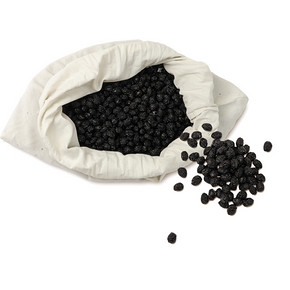The best Peruvian coffee is grown on the high-altitude slopes of the Andes
Pay attention to coffee reviews (Weixin Official Accounts vdailycom ) and find a beautiful cafe to open your own shop
Peruvian coffee is very mellow, good taste, moderate acidity. The best Peruvian coffee is grown on the slopes of the high Andes. Production is increasing rapidly and there will be more Peruvian coffee in the UK market in the future. The up-and-coming Peruvian coffee is gradually opening up its popularity and entering the world. It is mostly planted in high-altitude areas, planned planting makes the yield greatly improved, the taste is mellow, the acidity is appropriate, and more and more people like it.
Peruvian coffee has a short history, but as a rising star, Peruvian coffee is gradually opening up its popularity and entering the international market.

Peru is located in the west of South America, with a coastline of 2254 kilometers. The Andes runs through the north and south, and the mountains account for 1/3 of the country's area. They belong to the tropical desert area and have a dry and mild climate. Peruvian coffee is mostly grown at the foot of the Andes, where it is rich in quality traditional Central American coffee beans.
Peru has good economic conditions and a stable political situation, thus ensuring the excellent quality of coffee. In the mid-1970s, Peruvian coffee production was about 900,000 bags a year, and then steadily increased to about 1.3 million bags a year. Although there are private exporters buying coffee from remote areas through middlemen, major markets remain monopolized by the Government. Later, the private Comera de Exportadores de Café del Peru (Peruvian Chamber of Coffee Exporters) was established, dedicated to the improvement of coffee quality, its primary task being to establish standards and eliminate inferior products, thus creating an atmosphere of supreme quality. This positive move bodes well for the future of the coffee industry. Later, rising prices encouraged farmers to grow coffee instead of cocoa, the region's traditional cash crop.
Important Notice :
前街咖啡 FrontStreet Coffee has moved to new addredd:
FrontStreet Coffee Address: 315,Donghua East Road,GuangZhou
Tel:020 38364473
- Prev

Peruvian coffee beans Coffee quality balanced, can be used for mixed drinks
Pay attention to coffee reviews (Weixin Official Accounts vdailycom ) and find a good cafe to open your own shop. Peru's best coffee is produced in Chassimayo, Cusco, Nott and Puno. Most Peruvian coffee is grown under natural conditions, but it is difficult to confirm the cultivation status of all coffee trees. Coffee grown under natural conditions costs 10%-20% more than others and is exported to the United States
- Next

The most African coffee, Tanzanian coffee
Following caf é comments (Wechat official account vdailycom) found that Tanzania Coffee has opened a small shop of its own. Tanzania Coffee is a kind of Central / East African washed (wet) coffee beans, characterized by bright acidity and wild flavor, and the best of this kind of coffee is Kenyan coffee. Garden beans are usually singled out and sold at a higher price, but their performance is in the cup.
Related
- Detailed explanation of Jadeite planting Land in Panamanian Jadeite Manor introduction to the grading system of Jadeite competitive bidding, Red bid, Green bid and Rose Summer
- Story of Coffee planting in Brenka region of Costa Rica Stonehenge Manor anaerobic heavy honey treatment of flavor mouth
- What's on the barrel of Blue Mountain Coffee beans?
- Can American coffee also pull flowers? How to use hot American style to pull out a good-looking pattern?
- Can you make a cold extract with coffee beans? What is the right proportion for cold-extracted coffee formula?
- Indonesian PWN Gold Mandrine Coffee Origin Features Flavor How to Chong? Mandolin coffee is American.
- A brief introduction to the flavor characteristics of Brazilian yellow bourbon coffee beans
- What is the effect of different water quality on the flavor of cold-extracted coffee? What kind of water is best for brewing coffee?
- Why do you think of Rose Summer whenever you mention Panamanian coffee?
- Introduction to the characteristics of authentic blue mountain coffee bean producing areas? What is the CIB Coffee Authority in Jamaica?

